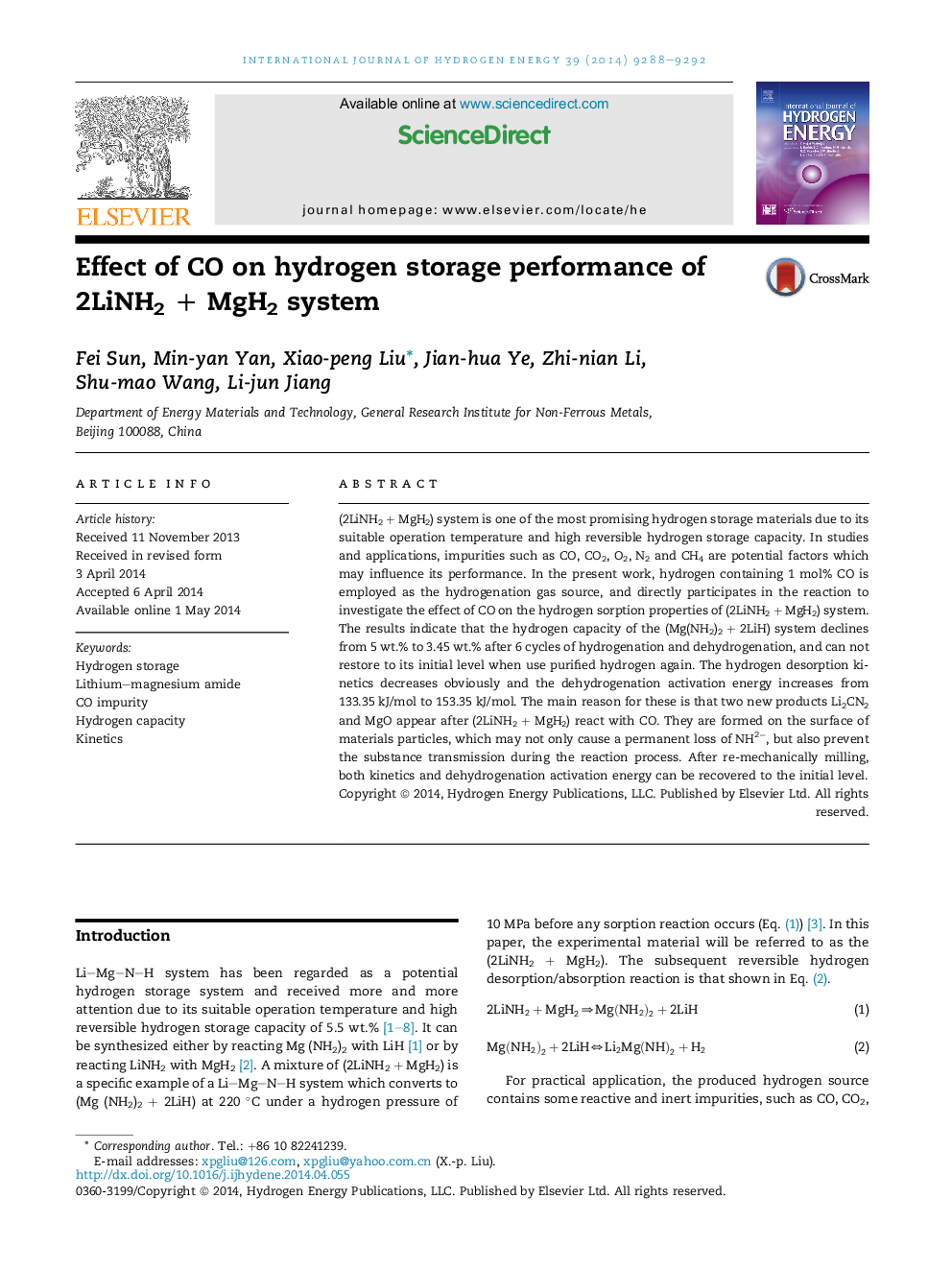| Article ID | Journal | Published Year | Pages | File Type |
|---|---|---|---|---|
| 7719088 | International Journal of Hydrogen Energy | 2014 | 5 Pages |
Abstract
(2LiNH2Â +Â MgH2) system is one of the most promising hydrogen storage materials due to its suitable operation temperature and high reversible hydrogen storage capacity. In studies and applications, impurities such as CO, CO2, O2, N2 and CH4 are potential factors which may influence its performance. In the present work, hydrogen containing 1Â mol% CO is employed as the hydrogenation gas source, and directly participates in the reaction to investigate the effect of CO on the hydrogen sorption properties of (2LiNH2Â +Â MgH2) system. The results indicate that the hydrogen capacity of the (Mg(NH2)2Â +Â 2LiH) system declines from 5Â wt.% to 3.45Â wt.% after 6 cycles of hydrogenation and dehydrogenation, and can not restore to its initial level when use purified hydrogen again. The hydrogen desorption kinetics decreases obviously and the dehydrogenation activation energy increases from 133.35Â kJ/mol to 153.35Â kJ/mol. The main reason for these is that two new products Li2CN2 and MgO appear after (2LiNH2Â +Â MgH2) react with CO. They are formed on the surface of materials particles, which may not only cause a permanent loss of NH2â, but also prevent the substance transmission during the reaction process. After re-mechanically milling, both kinetics and dehydrogenation activation energy can be recovered to the initial level.
Related Topics
Physical Sciences and Engineering
Chemistry
Electrochemistry
Authors
Fei Sun, Min-yan Yan, Xiao-peng Liu, Jian-hua Ye, Zhi-nian Li, Shu-mao Wang, Li-jun Jiang,
